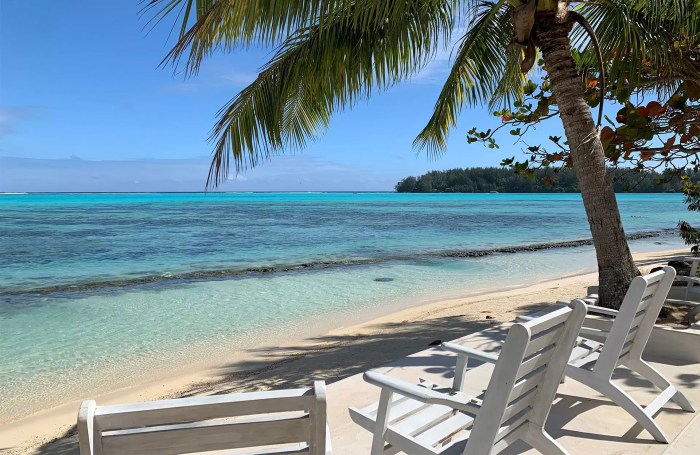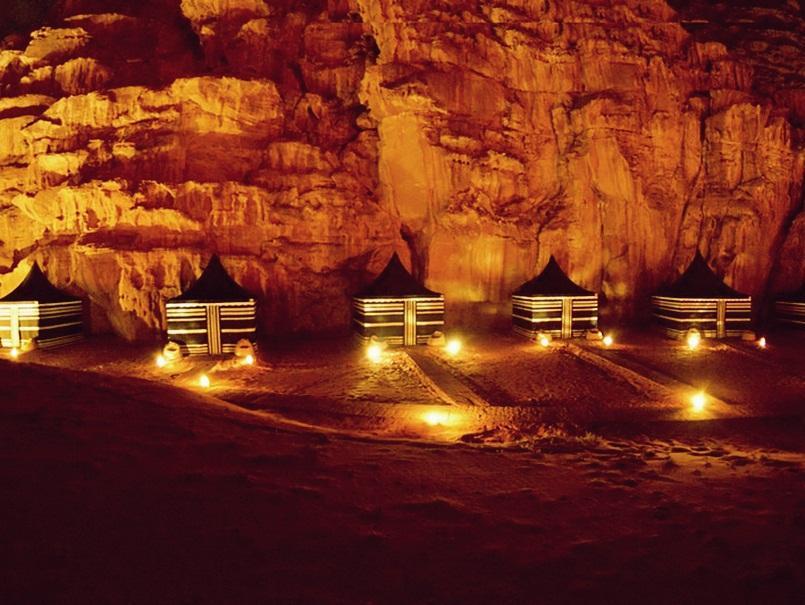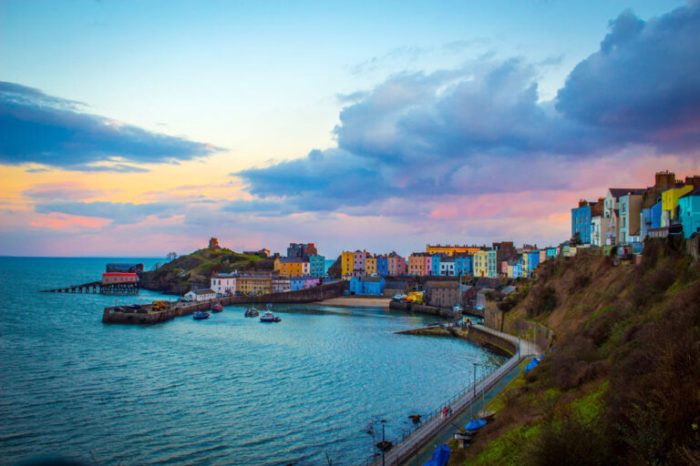Swim with pigs antigua – Embark on a once-in-a-lifetime experience as you swim with pigs in Antigua, a Caribbean paradise where the azure waters and pristine beaches meet the playful antics of these friendly creatures. This captivating journey offers an extraordinary blend of nature, culture, and adventure, promising an unforgettable encounter with the enchanting pigs of Antigua.
Discover the unique geography and marine environment of Antigua, where these pigs thrive in their natural habitat. Learn about the fascinating history and cultural significance of this activity, deeply rooted in the traditions of the local community. Immerse yourself in the breathtaking beauty of the Caribbean Sea, surrounded by vibrant coral reefs and teeming with marine life.
Location and Habitat
Swimming with pigs in Antigua takes place in the picturesque Caribbean island of Antigua, renowned for its white-sand beaches, crystal-clear waters, and vibrant marine life. The pigs reside on a secluded island called Pig Beach, accessible by boat from the mainland.
Pig Beach is characterized by its shallow turquoise waters and soft, sandy bottom, providing an ideal habitat for the pigs. The pigs have adapted well to their marine environment, becoming excellent swimmers and enjoying the abundance of food sources available in the surrounding waters.
Natural Habitat and Behaviors
The pigs on Pig Beach live in a semi-feral state, roaming freely around the island and foraging for food. They have established a social hierarchy and exhibit typical pig behaviors such as wallowing in mud baths, rooting for food, and interacting with visitors.
The pigs’ diet consists primarily of fruits, vegetables, and scraps provided by tourists and locals. They have also adapted to scavenging for marine life, such as crabs, mollusks, and fish, in the shallow waters surrounding the island.
Tour Operators and Experiences
Swimming with pigs in Antigua is a popular tourist activity, and there are several tour operators offering excursions to Pig Island. The tours typically include a boat ride to the island, time to swim with the pigs, and a stop at a nearby beach for snorkeling or relaxation.The
duration of the tours varies, but most last for around 3-4 hours. The cost of the tours also varies, but typically ranges from $50-$100 per person.Some of the most popular tour operators offering swimming with pigs excursions in Antigua include:
- Catamaran Cruises Antigua
- Excellence Antigua
- Funtime Charters
- Island Safari Antigua
- Tropic Tours Antigua
Reviews and testimonials from previous participants of swimming with pigs excursions in Antigua are generally positive. Many people report having a great time and enjoying the opportunity to swim with the pigs. However, some people have complained about the crowds on Pig Island, and others have said that the pigs can be aggressive.Overall,
swimming with pigs in Antigua is a popular tourist activity that can be a lot of fun. However, it is important to be aware of the potential for crowds and aggressive pigs before booking a tour.
Swimming with pigs in Antigua is a once-in-a-lifetime experience, but if you’re wondering about religious implications, you may want to consider is it haram to visit the pyramids . While this question may seem unrelated, it’s important to be aware of cultural sensitivities when traveling to different destinations.
Rest assured that swimming with pigs in Antigua is a widely accepted activity that does not conflict with any religious beliefs.
Pig Encounters
Interacting with the pigs during the swim is a unique and memorable experience. The pigs are friendly and curious, and they will often approach visitors to greet them. Visitors can interact with the pigs by petting them, feeding them, and swimming with them.The
pigs have distinct personalities, and some are more playful than others. Some pigs may be shy at first, but they will usually warm up to visitors after a few minutes. The pigs are also very food-motivated, and they will often beg for food from visitors.
Visitors should be aware that the pigs are not always gentle, and they may occasionally nip or bite if they are not handled properly.To get the most out of the experience, visitors should follow a few simple safety precautions. Visitors should not approach the pigs if they are sleeping or eating.
Visitors should also avoid touching the pigs’ ears or tails, as this can be painful for them. Visitors should also be aware that the pigs may carry diseases, and they should wash their hands thoroughly after interacting with them.
Swimming Conditions: Swim With Pigs Antigua
Swimming with pigs in Antigua offers a unique and memorable experience in the warm, crystal-clear waters of the Caribbean Sea. Here’s an overview of the water conditions and safety tips to ensure a safe and enjoyable swim.
The water surrounding the pig beach is typically calm and shallow, with depths ranging from 3 to 6 feet. The clarity of the water varies depending on weather conditions, but it is generally good, allowing for excellent visibility. The water temperature is warm year-round, averaging around 80°F (27°C), making it comfortable for swimming.
Water Safety
- Wear appropriate swimwear and water shoes for protection.
- Be aware of your surroundings and avoid swimming in areas with strong currents or high waves.
- Stay hydrated by drinking plenty of water before and after swimming.
- Apply sunscreen regularly to protect your skin from the sun’s harmful rays.
- If you are not a confident swimmer, consider wearing a life jacket for added safety.
Best Time to Visit
The best time to visit Antigua for optimal swimming conditions is during the dry season, which runs from December to April. During this time, the weather is generally sunny and dry, with calm seas and good visibility. However, swimming with pigs is possible year-round, as the water temperature remains warm even during the rainy season.
Photography and Videography
The crystal-clear waters and vibrant marine life at Pig Beach provide ample opportunities for capturing memorable photos and videos during your swim. Here are some tips to help you get the best shots:
-
-*Use a waterproof camera or housing
To capture underwater shots of the pigs and the surrounding marine environment.
-*Adjust camera settings
Set your camera to a fast shutter speed to freeze the motion of the pigs and reduce blur. Use a wide-angle lens to capture a wider field of view and get more of the pigs and the scenery in your shots.
-*Get close to the pigs
Don’t be afraid to get up close and personal with the pigs for more intimate and engaging photos.
-*Be patient
The pigs are curious and playful, so be patient and wait for them to approach you or engage in interesting behaviors.
-*Capture candid moments
Observe the pigs’ natural interactions with each other and with visitors for authentic and heartwarming shots.
Stunning Examples
Many previous participants have captured stunning images and videos of their swim with the pigs. These images showcase the beauty of the location, the playful nature of the pigs, and the unforgettable experience of interacting with these unique animals.
Environmental Impact
Swimming with pigs in Antigua has raised concerns about its potential environmental impact. The pigs’ waste and human activity can pollute the water and disturb the pigs’ natural behavior. To mitigate these concerns, tour operators have implemented measures to minimize disturbance and protect the pigs and their habitat.
Conservation Efforts
- Tour operators limit the number of visitors and duration of interactions to reduce stress on the pigs.
- Feeding of the pigs is prohibited to prevent them from becoming dependent on humans and to maintain their natural foraging behavior.
- Designated swimming areas are established to minimize disturbance to the pigs’ resting and breeding grounds.
- Educational programs inform visitors about the pigs’ behavior and the importance of responsible tourism.
- Collaboration with local organizations and researchers to monitor the pigs’ health and environmental impact.
Cultural Significance
Swimming with pigs in Antigua is not just a tourist activity but also holds cultural significance for the island’s residents. The pigs were originally brought to the island by European settlers in the 16th century and have since become an integral part of the local ecosystem and culture.
Stories and Traditions
Locals have many stories and traditions associated with the pigs. Some believe that the pigs were a gift from the gods, while others believe that they are descendants of pigs that survived a shipwreck. There is also a belief that swimming with the pigs brings good luck and prosperity.
The pigs have become a symbol of Antigua and Barbuda and are often featured in local art, music, and literature. They are also a popular tourist attraction, and many visitors to the island make a point of swimming with the pigs.
Comparison to Other Destinations
The swimming with pigs experience in Antigua stands out among similar offerings in other destinations due to its unique combination of factors, including the pigs’ friendly nature, the pristine beach setting, and the island’s rich history and culture.
Compared to other destinations, Antigua’s pigs are known for their exceptional tameness and willingness to interact with visitors. This is largely attributed to the long-standing tradition of feeding and caring for the pigs by local residents and tour operators, resulting in a trusting relationship between the animals and humans.
Beach Setting
The beach where the pigs reside, Pig Beach, is renowned for its white sands, crystal-clear turquoise waters, and picturesque surroundings. The combination of the pristine beach and the friendly pigs creates an idyllic setting for an unforgettable swimming experience.
Cultural Significance, Swim with pigs antigua
Swimming with pigs in Antigua holds cultural significance as the pigs have become an iconic symbol of the island. Their presence on the beach has contributed to Antigua’s reputation as a unique and charming destination, attracting visitors from around the world.
Health and Safety
Swimming with pigs is generally considered a safe activity, but there are some health and safety considerations to keep in mind.
Before traveling, it is recommended to get vaccinated against tetanus and typhoid. Sunscreen is also essential to protect your skin from the sun’s harmful rays.
Potential Risks
Potential risks associated with swimming with pigs include:
- Scratches or bites from pigs
- Exposure to bacteria or parasites in the water
- Sunburn or heatstroke
- Drowning
Avoiding and Treating Minor Injuries
To avoid minor injuries, it is important to:
- Stay clear of the pigs’ mouths and teeth
- Avoid swimming in areas with sharp objects or debris
- Drink plenty of water to stay hydrated
- Wear a life jacket if you are not a strong swimmer
If you do experience a minor injury, it is important to clean the wound immediately with soap and water. If the wound is bleeding heavily, seek medical attention.
Additional Activities and Attractions

In addition to swimming with pigs, Antigua offers a plethora of other activities and attractions that can be combined to create a comprehensive and memorable vacation experience.
The island boasts several pristine beaches with soft white sand and crystal-clear turquoise waters, perfect for swimming, sunbathing, and water sports like snorkeling, kayaking, and paddleboarding. Nearby, visitors can explore vibrant coral reefs teeming with marine life, making snorkeling and diving a must-do for nature enthusiasts.
Nearby Beaches
- Jolly Beach: A popular beach with a lively atmosphere, water sports rentals, and beach bars.
- Dickenson Bay: A calm and picturesque beach with calm waters ideal for swimming and relaxing.
- Half Moon Bay: A secluded and pristine beach with stunning views of the surrounding hills.
Snorkeling Spots
- Cades Reef: A renowned snorkeling spot with a vibrant coral reef and diverse marine life.
- Stingray City: A shallow sandbar where visitors can interact with friendly stingrays.
- Bird Island Reef: A protected area with crystal-clear waters and abundant sea turtles.
Historical Sites
- Nelson’s Dockyard: A UNESCO World Heritage Site and the former naval base of Admiral Horatio Nelson.
- Fort James: A historic fort with panoramic views of the harbor and surrounding islands.
- Betty’s Hope: The ruins of a former sugar plantation that provides a glimpse into Antigua’s colonial past.
To create a comprehensive itinerary, consider combining a swimming with pigs excursion with visits to nearby beaches, snorkeling spots, and historical sites. This will allow visitors to experience the diverse natural beauty and cultural heritage of Antigua.
Last Word
As you bid farewell to the playful pigs of Antigua, you will carry with you cherished memories and a newfound appreciation for the wonders of the natural world. Whether you are seeking a thrilling adventure or a serene escape, swimming with pigs in Antigua promises an extraordinary experience that will leave an everlasting impression.
Essential Questionnaire
Is it safe to swim with pigs in Antigua?
Yes, it is generally safe to swim with pigs in Antigua. Tour operators take precautions to ensure the safety of both participants and the pigs. However, it is important to follow instructions and maintain a respectful distance from the animals.
What is the best time of year to swim with pigs in Antigua?
The best time to swim with pigs in Antigua is during the dry season, which runs from December to April. During this time, the weather is typically sunny and calm, providing optimal conditions for swimming and enjoying the surrounding beauty.
Can I bring my own food to feed the pigs?
No, it is not recommended to bring your own food to feed the pigs. Tour operators provide specific food for the pigs that is safe and healthy for them to consume. Feeding the pigs outside food can disrupt their diet and cause health issues.


